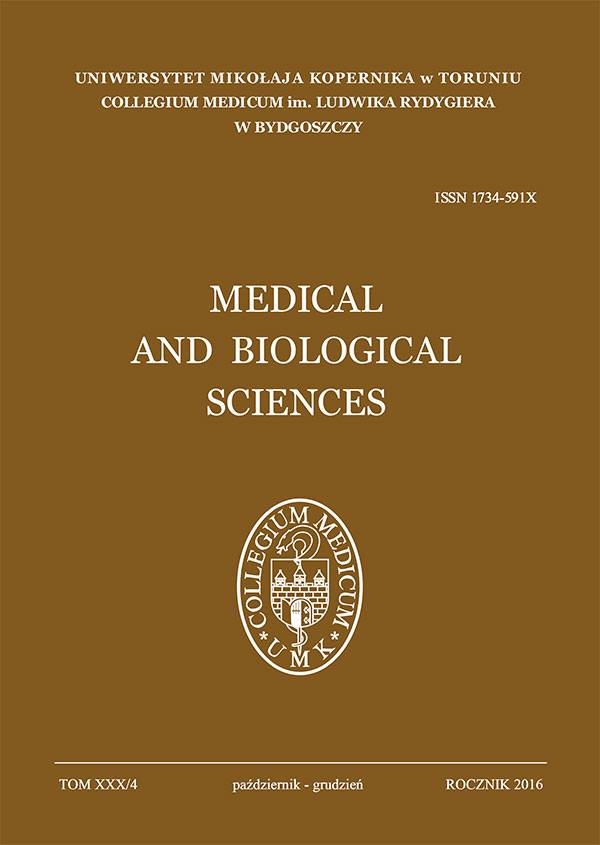Role of mobility in cognitive development of children with motor deficyt – own observations of wheelchairs users
DOI:
https://doi.org/10.12775/MBS.2016.036Keywords
physical activity, recreation, play, cognitive development, quality of life, disabled childrenAbstract
Wheelchair plays two important roles from the physical point of view: increased mobility and body support. Two main areas of children’ development: motor and cognitive are interrelated. Thus, wheelchair supported mobility in children may also prevent many severe problems in the area of social and cognitive development.
This paper aims at presentation of current state of the art and own concept concerning the role of the wheelchair-based mobility in cognitive development of children with motor deficit.
References
Bray N, Noyes J, Edwards RT, Harris N. Wheelchair interventions, services and provision for disabled children: a mixed-method systematic review and conceptual framework. BMC Health Serv Res. 2014;14:309.
Travlos V., Patman S., Wilson A., Simcock G., Downs J. Quality of life and psychosocial wellbeing in youth with neuromuscular disorders who are wheelchair users: A systematic review. Arch Phys Med Rehabil. 2016; doi: 10.1016/j.apmr.2016.10.011.
Elboim-Gabyzon M., Atun-Einy O., Khoury-Assaf I. Early use of power wheelchair for children with Duchenne muscular dystrophy: a narrative review. Disabil Rehabil. 2016; 9:1-9.
Livingstone R., Field D. Systematic review of power mobility outcomes for infants, children and adolescents with mobility limitations. Clin Rehabil. 2014;28(10):954-64.
Nooijen C. F., de Groot J. F., Stam H. J., van den Berg-Emons R. J., Bussmann H. B.; Fit for the Future Consortium. Validation of an activity monitor for children who are partly or completely wheelchair-dependent. J Neuroeng Rehabil. 2015;12:11.
O'Brien T. D., Noyes J., Spencer L. H., Kubis H. P., Hastings R. P., Edwards R. T., Bray N., Whitaker R. 'Keep fit' exercise interventions to improve health, fitness and well-being of children and young people who use wheelchairs: mixed-method systematic review protocol. J Adv Nurs. 2014;70(12):2942-51.
Eather N., Morgan P. J., Lubans D. R. Improving health-related fitness in children: the Fit-4-Fun randomized controlled trial study protocol. BMC Public Health. 2011;11:902.
Mikołajewska E. Wózki dla osób z niepełnosprawnością ruchową. FEM, Bydgoszcz 2016.
Poranen-Clark T, von Bonsdorff MB, Lahti J, Räikkönen K, Osmond C, Rantanen T, Kajantie E, Eriksson JG. Infant motor development and cognitive performance in early old age: the Helsinki Birth Cohort Study. Age 2015;37(3):9785.
Akdemir D, Pehlivantürk B, Unal F, Ozusta S. Comparison of attachment-related social behaviors in autistic disorder and developmental disability. Turk Psikiyatri Derg. 2009;20(2):105-17.
Rendeli C, Salvaggio E, Sciascia Cannizzaro G, Bianchi E, Caldarelli M, Guzzetta F. Does locomotion improve the cognitive profile of children with meningomyelocele? Childs Nerv Syst. 2002;18(5):231-4.
Makiełło-Jarzowa G, Gerc K. Psychological consequences of neurologic motor impairment from a developmental perspective. Przegl Lek. 1998;55(4):198-202.
Klasik A, Janas-Kozik M, Krupka-Matuszczyk I, Augustyniak E. Cognitive functions, their development and modern diagnostic methods. Przegl Lek. 2006;63 Suppl 1:29-34.
Frolek Clark GJ, Schlabach TL. Systematic review of occupational therapy interventions to improve cognitive development in children ages birth-5 years. Am J Occup Ther. 2013;67(4):425-30.
Mikołajewska E., Mikołajewski D. Aplikacje mobilne w diagnostyce i terapii dzieci. Przegl. Pediatr. 2016;45(1):32-38.
Komendziński T., Mikołajewska E., Mikołajewski D., Dreszer J., Bałaj B. Cognitive robots in the development and rehabilitation of children with developmental disorders. Bio-Algorithms Med-Systems 2016; 12(3):93-98.
Mikołajewska E., Mikołajewski D., Komendziński T., Dreszer-Drogorób J., Bałaj B. Robot-mediated pediatric neurorehabilitation. J. Health Sci. 2014;4(2):91-96.
Mikołajewska E., Mikołajewski D., Komendziński T. Wykorzystanie zabawek w rehabilitacji neurologicznej dzieci. Niepełnosprawność Rehab. 2014;14(2):119-129.
Mikołajewska E., Komendziński T., Dreszer J., Bałaj B., Mikołajewski D. Tytuł oryginału: Role of toys in the development and rehabilitation of children with developmental disorders. Czasopismo: J. Educ. Health Sport 2015;5(4):224-228.
Downloads
Published
How to Cite
Issue
Section
Stats
Number of views and downloads: 853
Number of citations: 0



